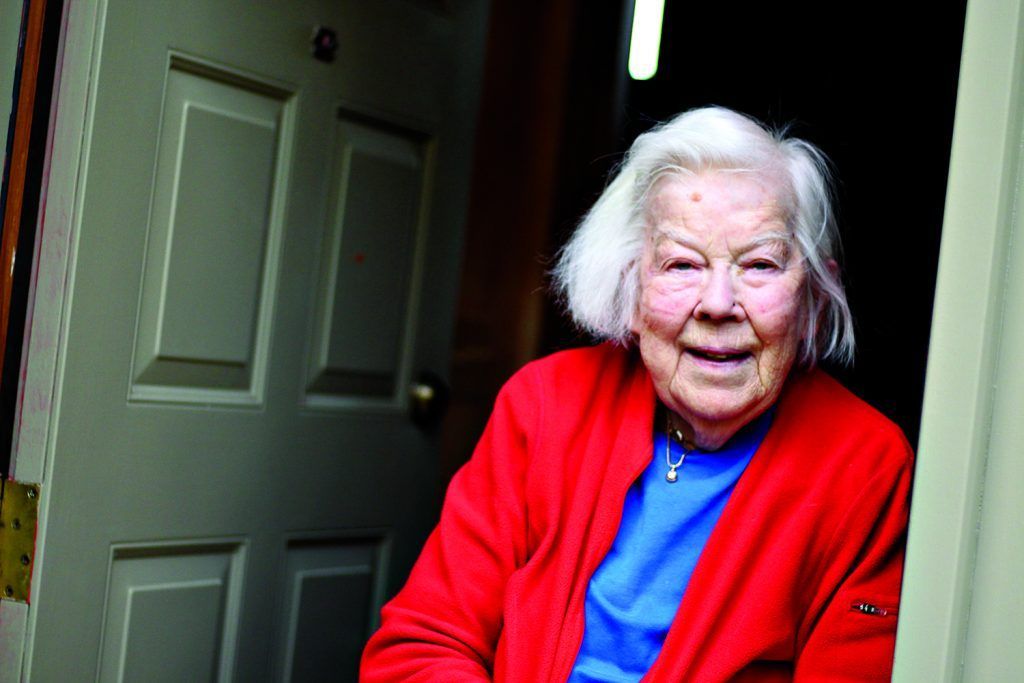
Before the rest of the world retreated into their homes and trips to the store and work dwindled to a minimum, Jeannette Winner already was growing accustomed to the solitary life.
“I’m no spring chicken anymore,” Winner said with a laugh. “Some people keep charging through that part of their life … I’m content to just get up in the morning and go to bed at night.”
After a recent stint in the hospital, Winner came back to her 40-acre property, which overlooks the mountains near Williamsport, Pa. A fiercely independent woman, Winner, 85, is no longer able to drive and rarely gets out of the house.
But while COVID-19 has intensified Winner’s limited human interaction, her daily experience is now common for many others in all walks of life.
Growing over the years
Isolation and loneliness are nothing new in the United States, according to Kimberly Delbo, director of nursing services at Emmanuel Home in Northumberland. In fact, it’s an issue that has more than doubled since the 1980s.
“This was a public health epidemic even before COVID-19,” Delbo said. “It’s very detrimental to one’s health for someone to be alone.”
While many see isolation as an issue mainly for older individuals or those in nursing homes, research shows that depression and social exclusion exists among younger people as well.
Vivek Murthy, the 19th U.S. surgeon general, is an outspoken advocate against isolation and loneliness and has spent years researching its progression and cause.
Amplified by COVID-19
Forced isolation due to the coronavirus has taken an existing problem and amplified it, Murthy said in a recent USA Today article, which also highlighted his book, “Together: The Healing Power of Human Connection in a Sometimes Lonely World.”
He predicted that extended isolation would have lasting effects, with studies showing that adults with strong social interaction are 50% less likely to die prematurely.
Delbo sees this trend highlighted at Emmanuel Home, a nursing home with 30 residents that closed its doors to outside visitors on March 18. In addition, the home stopped all group meals and functions.
“We’re losing the personal connection,” Delbo said. “It’s key to remember that we are people … Humanity must come first.”
It’s especially important for nursing homes to help their residents stay connected with the outside world – friends and family, Delbo said, adding that Emmanuel Home is introducing many residents to video messaging for the first time.
Families on parade
Valley View Nursing Home, in Montoursville, also has found unique ways to keep its residents connected and uplifted. Shortly after quarantining the facility, staff introduced the “family parade.” On nice days, residents of the nursing home come out to the building entrance portico as families drive through to see their family members and friends, said Michele Brague, administrator of the nursing home.
“We decided we could do that safely,” Brague said. “We’ve had nothing but support on this.”
Safety is key, and all residents remain 6 feet apart from their visitors, Brague said, but having them so close and talking in person is great for morale.
“It’s very emotional,” she said. “Human interaction is the fiber of our being.”
Providing video messages from family members, instituting a prayer chain with The Meadows (which is just across the parking lot) and creating a designated nature area also are key to keeping everyone engaged.
But nothing replaces human touch, sitting for hours in a room together or getting a hug from grandchildren.
“We have to keep this vulnerable population safe,” Brague said. She has been happy to see neighbors looking after neighbors and even her staff working hard to keep everyone’s spirits up.
‘Quite self-sufficient’
Meanwhile, in her house just north of Williamsport, Winner always has thrived on human interaction. She loves excitement, whether it be from symphony shows at the Community Arts Center, Sunday church services, trips to Wegmans or visits from the young boy who lives down the street.
These have all been put on hold. Even the neighbor boy who once visited her every day hasn’t been by in weeks.
But despite losing these for now, Winner is quick to say she is content. Her meals and other care are provided by Home Instead Senior Care and she talks with her family and friends from church over the phone.
“I feel like I’m quite self-sufficient,” Winner said, as she waits for the day she can do even the very simplest of things, like go to the hairdresser.



